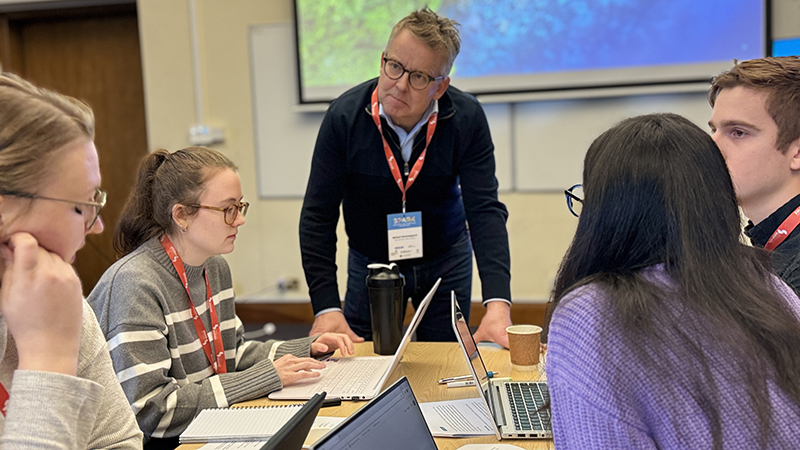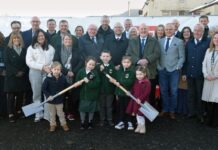
RAMBOLL, the engineering, design and sustainability consultancy, held its first UK SPARK innovation challenge in Glasgow recently.
30 students from Scottish universities worked with experts from Ramboll and SSE Renewables to devise sustainable and scalable solutions to apply nature positive actions at onshore wind farm sites operated by SSE Renewables.
Mixed teams of students from The University of Edinburgh, The University of the Highlands and Islands, Scotland’s Rural College and The University of Strathclyde, collaborated across various specialist study areas, such as peatland and resilience; innovation and circularity; and biodiversity net gains and quantification. After workshopping ideas, the teams presented solutions to a panel of experts.
The winners proposed a biodiversity digital twin to support the selection, management and long-term monitoring of biodiversity enhancements. The winning team has been invited to develop the idea further with Ramboll and SSE Renewables – drawing on existing expertise, such as Ramboll’s sustainable land management and biodiversity restoration tool Galago and SSE Renewables’ use of digital twin technology for asset management at Griffin Wind Farm.

The digital twin team concept also highlighted the potential to support community engagement through citizen science – for example, by encouraging the public to participate in habitat condition monitoring by sharing their own pictures at wind farm sites within geo-fenced areas, with QR codes positioned on sites to de-mark monitoring zones.
Michael Simmelsgaard, Ramboll chief operating officer, said, “The SPARK programme recognises that innovation begins with a well-defined problem, before ensuring diverse expertise, interests and opinions collaborate to find a solution so that no opportunities are missed in the journey to a sustainable future. It’s an exciting initiative to be a part of, and particularly fantastic to see the first UK SPARK challenge highlight AI. This technology is undoubtedly vital in finding optimal climate and biodiversity solutions at a pace in which we need them.”
Kate Wallace Lockhart, head of sustainability at SSE Renewables, added, “It has been exciting to work with Ramboll and a range of experts with different perspectives to think creatively about everything from peatlands to digital innovation in order to come up with commercial, scalable solutions to the important challenge of biodiversity net gain across our operational fleet of almost 50 onshore wind farms. Its motivation for the power of thinking differently about how we approach known challenges.”
The event builds on two previous SPARK innovation challenges held in the US, bringing industry and academia together to promote cross-collaboration and support the next generation of leaders into green jobs.








